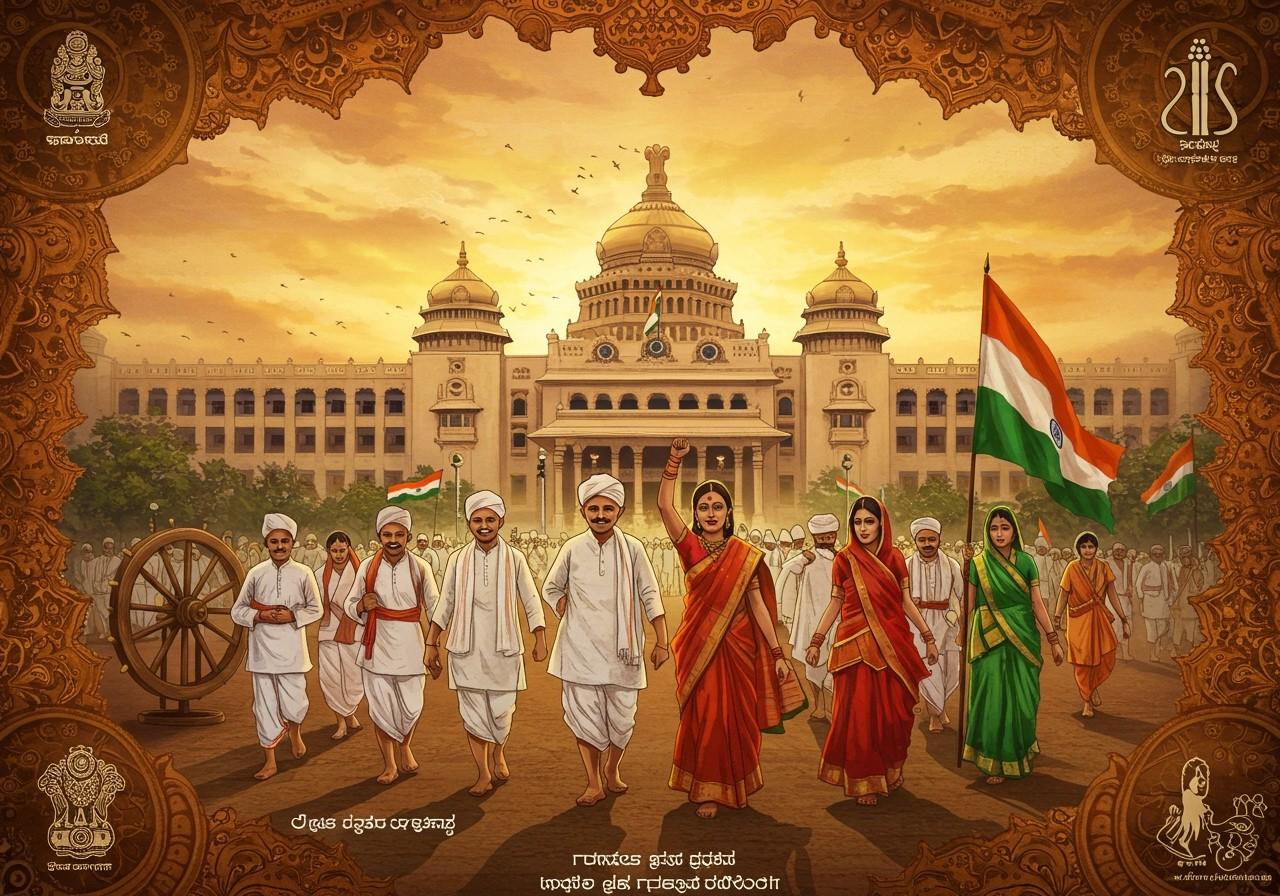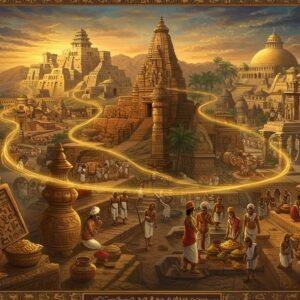
Karnataka, a state in southwestern India, played a crucial role in India’s fight for independence. Its rich heritage and history significantly contributed to the freedom movement. This post explores Karnataka’s involvement, highlighting the courageous freedom fighters, historical places, and influential personalities who shaped India’s path to liberty.
Early Resistance and the Fight for Freedom
Karnataka’s early resistance against British rule began in the early 19th century. Hyder Ali and Tipu Sultan, prominent figures in Karnataka’s history, fiercely resisted the British East India Company’s growing influence in the late 1700s. The princely states of Mysore and Kodagu also played key roles in these early resistance movements.
The Sepoy Mutiny of 1857 significantly impacted Karnataka. The British intensified their repression following the mutiny, but this only fueled the flames of resistance. Reformist groups and societies, such as the Karnataka Vidyavardhaka Sangha, emerged in the late 19th century to oppose British rule. The Indian National Congress also began its activities in Karnataka around this time, further strengthening the movement.
Prominent Freedom Fighters of Karnataka
Karnataka contributed numerous notable freedom fighters who played essential roles in India’s journey to independence:
- Rani Abbakka Chowta: The queen of Ullal, fought valiantly against Portuguese attempts to colonize the coastal regions of Karnataka in the 16th century. Her bravery and strategic acumen made her a formidable opponent.
- Kittur Rani Chennamma: This courageous queen led an armed rebellion against the British in 1824, defying their Doctrine of Lapse. Her defiance inspired many and solidified her place as an icon of resistance.
- Sangolli Rayanna: A brave warrior and close associate of Kittur Rani Chennamma, Sangolli Rayanna organized guerrilla warfare against the British. His tactical brilliance and unwavering commitment to freedom made him a legendary figure.
- Karnad Sadashiva Rao: A prominent figure in the Indian independence movement from Karnataka, Sadashiva Rao played a pivotal role in advocating for the rights of farmers and laborers. His activism and leadership contributed significantly to social and political reform during the freedom struggle.
Many other brave individuals, including prominent women freedom fighters and numerous unsung heroes across Karnataka’s diverse regions, contributed significantly to the fight for independence. Their combined efforts, documented across numerous historical accounts and archives (over 40 pages of documented activists), helped pave the path to a free India.
Historical Places of Significance
Karnataka is home to several historical landmarks that played significant roles in the freedom struggle:
- Bangalore Fort: Originally a mud fort built by Kempe Gowda I in 1537, it later became a stronghold during Tipu Sultan’s resistance against the British. Its historical significance resonates with the spirit of resilience against colonial rule.
- Kittur Fort: This fort is inextricably linked with Rani Chennamma’s rebellion against the British in 1824. It stands as a symbol of her courageous defiance and the fight for sovereignty.
- Vidhana Soudha: Built after India gained independence, the Vidhana Soudha is the seat of the state legislature and symbolizes Karnataka’s post-independence political journey and democratic values.
Poojn.in: Honoring Karnataka’s Freedom Fighters
At Poojn.in, we honor the legacy of Karnataka’s freedom fighters. We offer a wide selection of puja items and ritual materials for ceremonies commemorating these brave individuals:
- Incense and Dhoop: Pure camphor and traditional agarbattis for aarti ceremonies. Create a reverent atmosphere during memorial events with authentic fragrances.
- Puja Thalis and Accessories: Brass and copper thalis for offerings. Perform traditional rituals with authentic puja accessories, honoring the sacrifices of freedom fighters.
Visit www.poojn.in to explore our complete collection. We provide high-quality, authentic puja items for all your needs.
Conclusion
Karnataka’s contribution to India’s freedom struggle is a testament to the state’s unwavering spirit and rich history. The sacrifices of its freedom fighters, the significance of its historical landmarks, and the cultural impact of the resistance have left an enduring legacy. As we remember these heroes, we continue to cherish the values of liberty and justice for which they fought.


